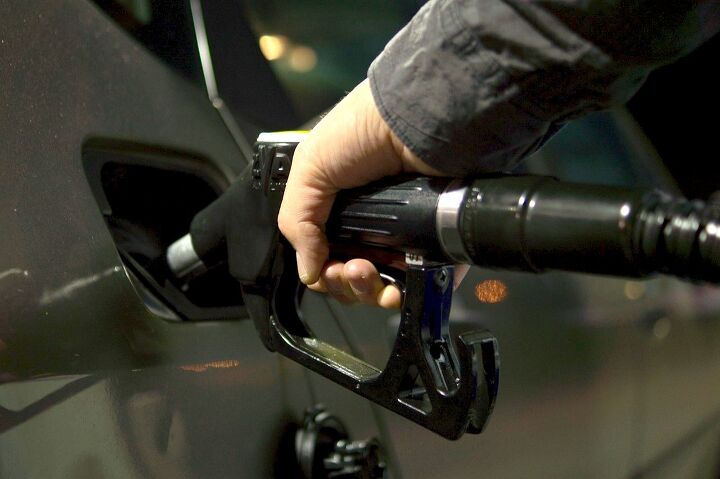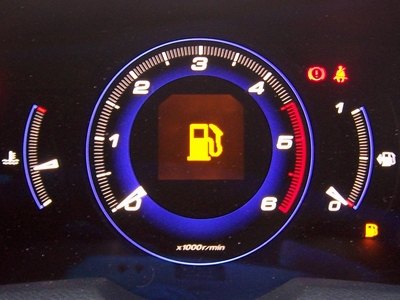#MilesPerGallon
Researcher Claims Real-World Economy and Lab Testing Are Miles Apart
One of my guiltiest of pleasures is telling anyone trapped with me in a confined space for more than thirty seconds that practical fuel economy hasn’t improved in a meaningful way since 2014. While the EPA has raised corporate economy estimates, consumer spending has skewed toward larger and less economical models — invalidating the technological gains made in a vehicular catch-22.
However, some researchers have also begun calling the technologies focused on cutting emissions and saving fuel into question. We already know that lab tests can be gamed through clever engineering. But we don’t drive vehicles on a rolling road and the differences between the lab and the street are immense. Emissions Analytics, an independent company based in the United Kingdom, has tested more than 500 vehicles in the United States since 2013 and believes a change in testing venue can make all the difference.
The firm conducts real-world analyses under normal on-road driving conditions using portable testing gear. Its says its goal is to suss out which trends in the automotive space actually have a meaningful impact on economy — and which are bunk.
This Is What Mazda EPA MPG Results Will Look Like With Skyactiv-X HCCI Engines (Asterisk, Fine Print, Subject To Change)
Mazda announced on August 8th what had long been rumored. The small Japanese automaker has successfully overcome the remaining issues which held at bay mass production of gasoline compression ignition.
Essentially, Mazda’s Skyactiv-X engines, due first in the next-generation 2019 Mazda 3, is intended to bring diesel-like ignition to small, supercharged four-cylinder engines, along with diesel-like fuel economy. However, the gas-fired Skyactiv-X engines will be wildly cleaner than diesel powerplants. Mazda has said in the past that these HCCI engines will likely limit the need for continuously variable transmissions. We also learned, with Mazda’s latest pronouncement, that the company’s Skyactiv-X engines will be significantly torquier than their Skyactiv-G predecessors.
If Mazda can live up to its pronouncements — the company says the engines are “still under development and figures are subject to change” — it’ll be a win for both the environment and driving enthusiasts. And because Mazda also claims a 20-30-percent improvement in fuel efficiency, it’ll be a win for your bank account, as well.
We wanted to see exactly where Mazda’s alleged fuel savings will put Mazda’s current products on the EPA’s miles per gallon scale, so here are the results of some quick math.
Study Shows Nearly Nine in 10 Americans Want Better Fuel Economy, But There's a Problem
A recent study from Consumers Union — the public policy and advocacy division of Consumer Reports — shows continued interest among U.S. residents in seeing automakers improve fuel economy figures, even as gas prices remain fairly low.
While this should come as a shock to no one, nearly nine in 10 surveyed consumers agreed automakers should continue improving fuel efficiency standards on all vehicles. As well, only 30 percent believed manufacturers actually cared about lowering fuel costs for their customers.
This might be true but, then again, why would automakers do such a thing when the general populace has essentially turned its back on economical passenger cars? With little incentive to sell them, especially if the Trump administration alters 2025 emission targets, any top-tier automaker focusing exclusively on building MPG-focused automobiles would be placing itself at major financial risk.
The survey indicated fuel economy as the area perceived to possess the most room for improvement in modern vehicles. However, consumers have not used their wallets to bolster economy car sales. There appears to be a disparity between what the public claims to value and how it actually behaves. At a minimum, consumers may have misunderstood everything it would take to see fleet-wide fuel consumption decline. If they want to see higher MPGs, they’re going to have to make some sacrifices and the survey doesn’t allude to that fact.
The EPA Seems Overly Excited About People Buying SUVs Again
The auto industry’s average fuel economy for new vehicles sputtered upwards by 0.5 miles per gallon last year, according to recent data from the Environmental Protection Agency. While that may sound like cause for celebration, let’s not lose perspective. A statistical record high may be noteworthy, but not necessarily indicative of a new upward trend.
First, let’s try to figure out what happened last year to drive the industry average out of a period of mpg stagnation.
New or Used? : How Much Is MPG Really Worth?
Dear Steve:
My wife and I finally bought a brand new Honda Accord. She loves it, and I now have one less worry in my life.
With that one less worry though comes two more things, in the form of two similarly sized cars. At least one of which I no longer need.
Editorial: Time For Fuel Economy Reform
The revised fuel economy ratings for the Ford C-Max aren’t the first time that an auto maker has been forced to backtrack on fuel economy claims – nor will it be the last unless meaningful reform is undertaken to ensure that fuel economy figures more accurately reflect the way motorists drive their cars in the real world.




















Recent Comments